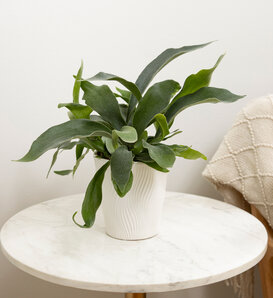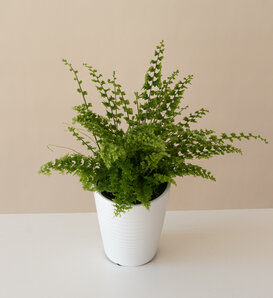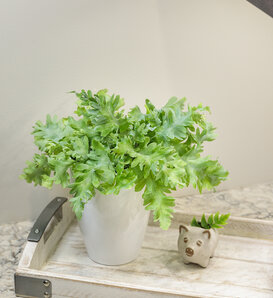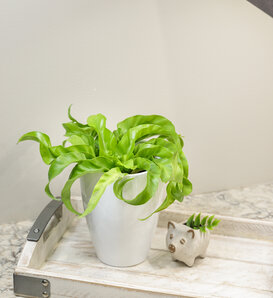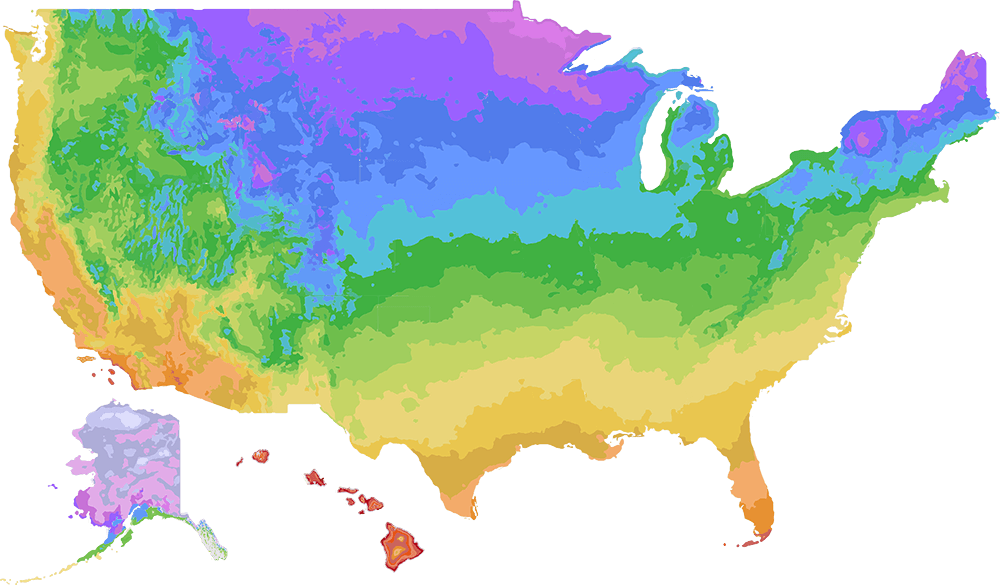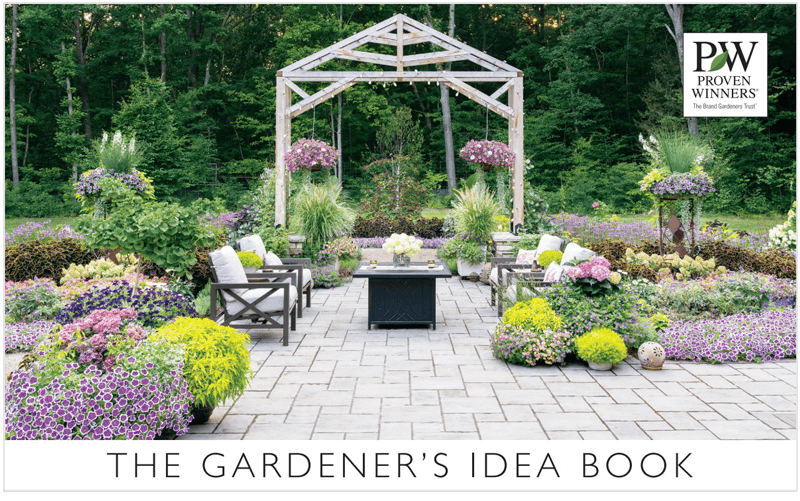Living Lace® Victoria Bird's Nest Fern Asplenium antiquum
Select any icon above to view the complete collection.
Learn more about Proven Winners® leafjoy® houseplants
- Low
- Medium
-
12 - 24 Inches0 -0 -30cm - 61cm0cm0cm
Features
This is a stand-out, whorling fern, and so easy to care for. It has broad strap leaves that form from a center rosette, traditional to all bird's nest ferns, but this fern has a wildly distinctive shape. As with other bird’s nest ferns, it is natively found clinging to trees and cliffs edges, much like an orchid or other epiphytic plants. In the wild of the Asian tropics, dew, water, and organic matter are collected in the center and absorbed by the plant. As a houseplant, you do not want water directly into the center of your fern, but instead, water around it. It is native to the tropics of Asia in Indonesia, Burma, Thailand, Cambodia, Vietnam, and the southern parts of India.
Adaptable As HouseplantFoliage InterestCharacteristics
Plant Type:HouseplantHeight Category:MediumHeight:12 - 24 Inches 30cm - 61cmFoliage Colors:GreenFoliage Shade:Bright greenHabit:MoundedContainer Role:FillerPlant Needs
Light Requirement:LowLight Requirement:MediumLow - No direct sun, not near a window. Medium - Medium bright indirect light in the AM or PM, typically from an east or west window. High - Bright direct or indirect light for much of the day, typically from a south window.
Maintenance Category:ModeratePreferred Temperature:60 - 85 °FWater Category:WetHumidity Preference:HighContainer Soil Type:Indoor Potting MixNeeds Good DrainageUses:DesktopsUses:Epiphyte (a plant that attaches itself to another plant for support)Uses:Humid SpacesUses:Low Light SpacesUses:North Facing WindowsUses Notes:This plant is not intended for consumption. If ingested, seek medical advice promptly:1. For humans: Contact a physician or poison control center.2. For pets: Consult your veterinarian or visit ASPCA.org for guidance.Maintenance Notes:- For optimal performance, keep your Fern at 60-85°F (15-29°C).
- Ferns thrive in medium to bright indirect light. Placing them near an eastern- or northern-facing window, that does not get any midday direct sunlight, would be ideal.
- Ferns prefer high humidity to prevent their edges from turning brown. Cold drafts and forced air can also lead to browning tips and edges. You can supplement their humidity with a humidifier, regular misting, or by placing them on a pebble tray with water.
- Ferns prefer moist, but not soggy soil. Be sure to water when the top inch of soil feels dry. Ensure good drainage and do not allow your Fern to sit in water for extended periods of time, after it has received a good soaking.
- Feed your Fern once per month at half strength when it is actively growing. Reduce frequency of fertilization in the winter months. If no new leaves are growing, it does not need to be fertilized.
- Protect furniture when watering & fertilizing.
- When repotting your Fern, use an all-purpose potting mix, with perlite added to ensure good drainage.
-







